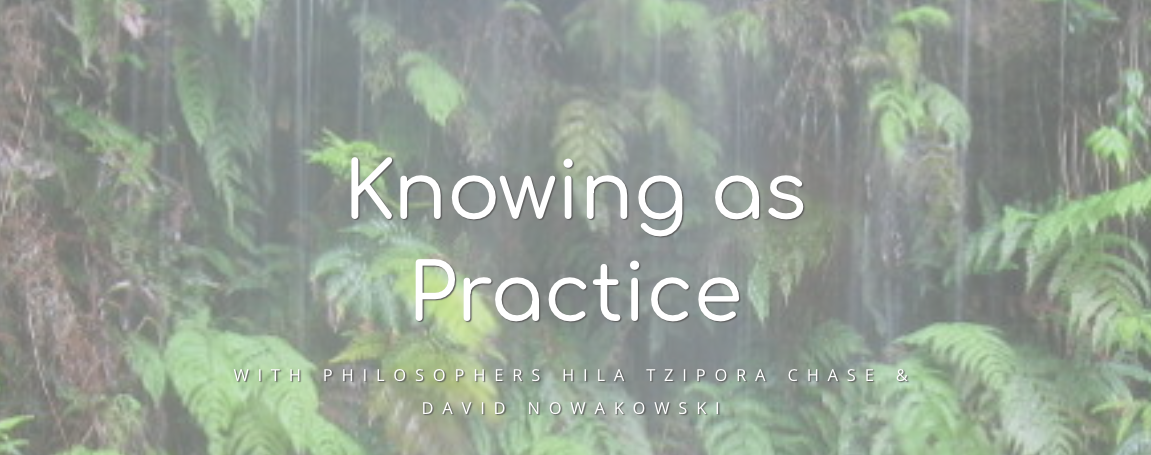
Philosophers sometimes treat knowledge as something we have when we’re seated comfortably in a proverbial or literal armchair, eyes closed, “tucked away from the world”—the sort of thing that some disembodied mind could do just as well, or even better, than we can. Yet at the very least, this seems to leave out a significant aspect of our humanity: the fact that we are embodied creatures, who actively and dynamically interact with the things that we think about and know.
In this workshop, we looked directly at ways of experiencing, of encountering, and of knowing that involve the full, embodied human being:
-
In our own lives, how do we already know and encounter the world in embodied ways?
-
How can we deliberately cultivate, improve upon, or develop embodied ways of knowing and understanding? And why would we want to do that?
-
How do human beings, past and present, know and understand communally, through established and traditional practices?
-
How might carefully attending to these embodied ways of knowing be of benefit to our communities, our world, and ourselves?
Through all of this, we fleshed out a view of knowing as practice—and as something that is itself embodied in communities, persons, and relationships.
In keeping with the subject matter, the workshop was highly interactive and dynamic. Using embodied activities and reflective dialogue, we wove together our own personal experiences with a diversity of traditional perspectives and ways of knowing from around the world, both recent and historical. And we left with some specific techniques, practices, and approaches, through which each of us can continue to explore and cultivate some of these embodied ways of knowing in our own lives and communities.
Videos
(Workshop Introduction)
Pictures
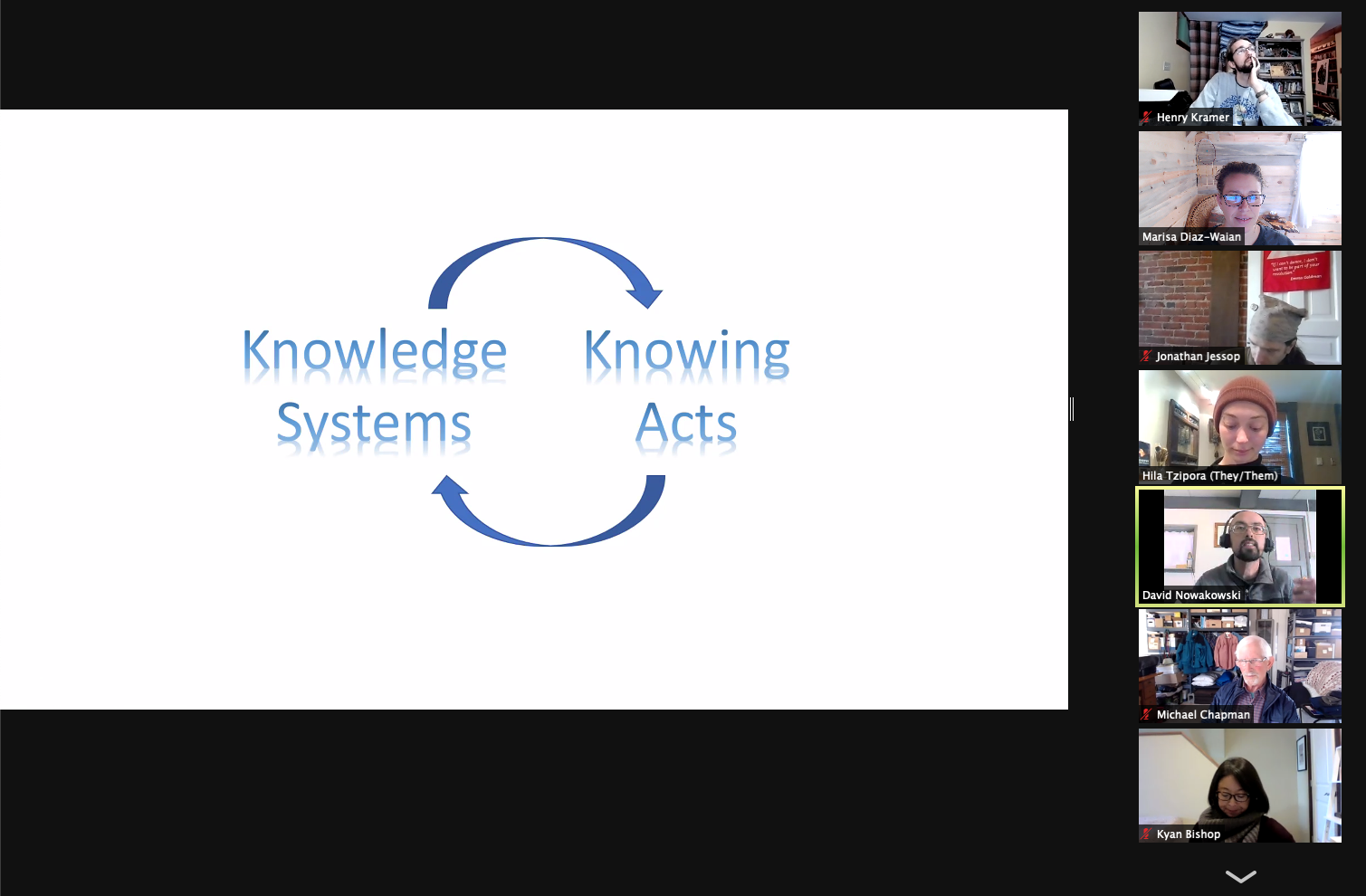
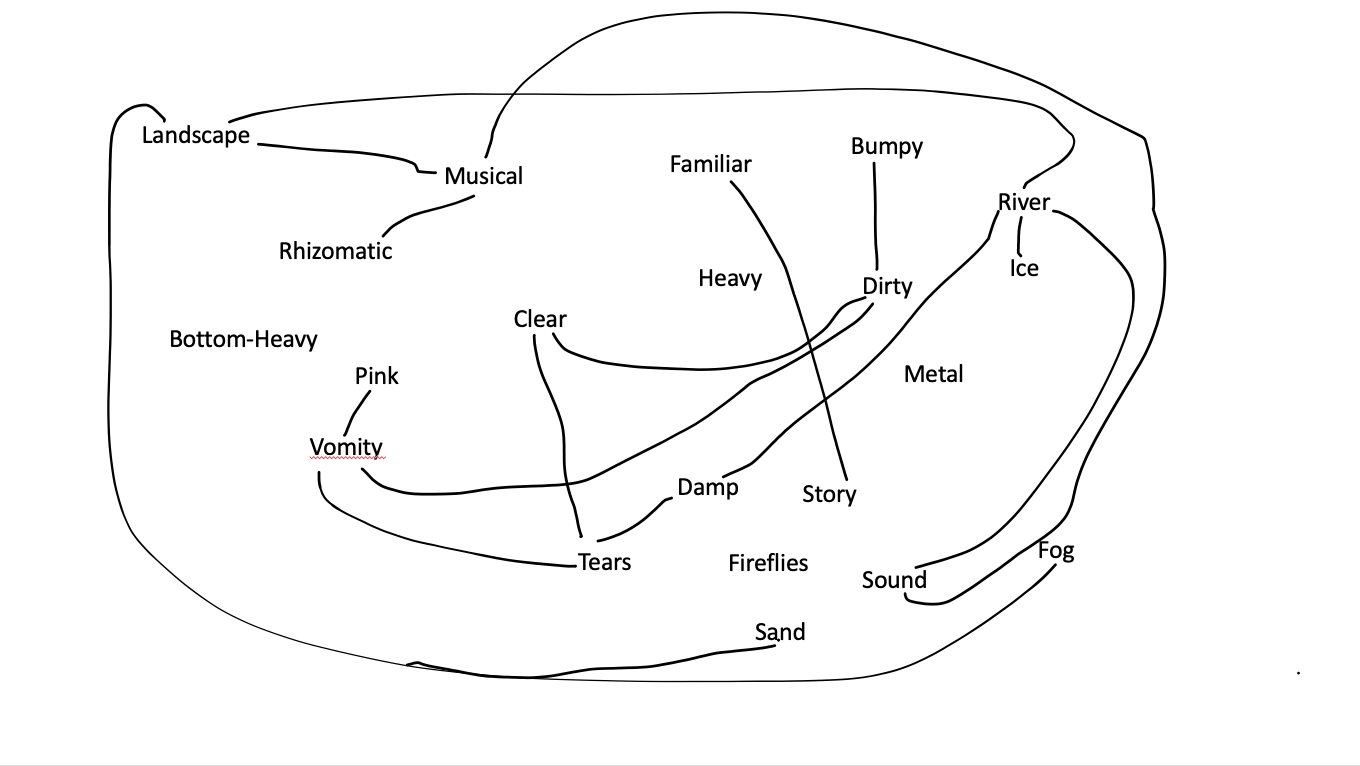
Workshop Leaders
About Hila Tzipora Chase...
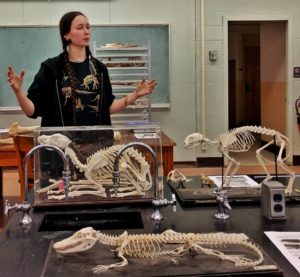
Hila Tzipora Chase is a multicultural artist, scientist, and practical philosopher currently living in the traditional territories of the Salish, Pend d’Oreille, Kootenai and the Blackfeet peoples in the heart of the Missoula basin. After spending what would have been their high school years teaching social circus arts in Jerusalem and working as a house cleaner to help support their family, Hila moved to NYC to pursue their bachelor’s degree in biology and an interdisciplinary honors degree, focusing on the intersection of culture, cosmology, and the natural world.
From philosophy of science and environmental philosophy in the dominant academic system, to the indigenous practice-based philosophies they were raised on and trained in by their elders and communities, Hila has always based their work in fostering deep integration, embodiment, and interconnection for all.
An integrative scholar and worker with deep roots around the planet, Hila moved across the Atlantic once more in 2016 to pursue their PhD in ecology, evolution, and bird flight biomechanics, and to continue developing and applying their Roots-Based Integration paradigm.
Aside from watching birds fly and reading their bones to better understand the stories of their ancestors, Hila’s current work focuses on using Roots-Based Integration (an interdisciplinary approach they developed that goes far beyond academic disciplines) to provide a hands-on approach to systemic reform, decolonization, community-building, and eco-psychological health. Using this paradigm, they have thus far taught a campus-wide graduate seminar course at the University of Montana and have run multiple international workshops at conferences, for graduate courses, and for grassroots-organized community events. They are excited to continue this hands-on approach to connecting people to themselves, each other, and to the dynamic and wonderous world of creatures with whom we share a home.
About David Nowakowski...
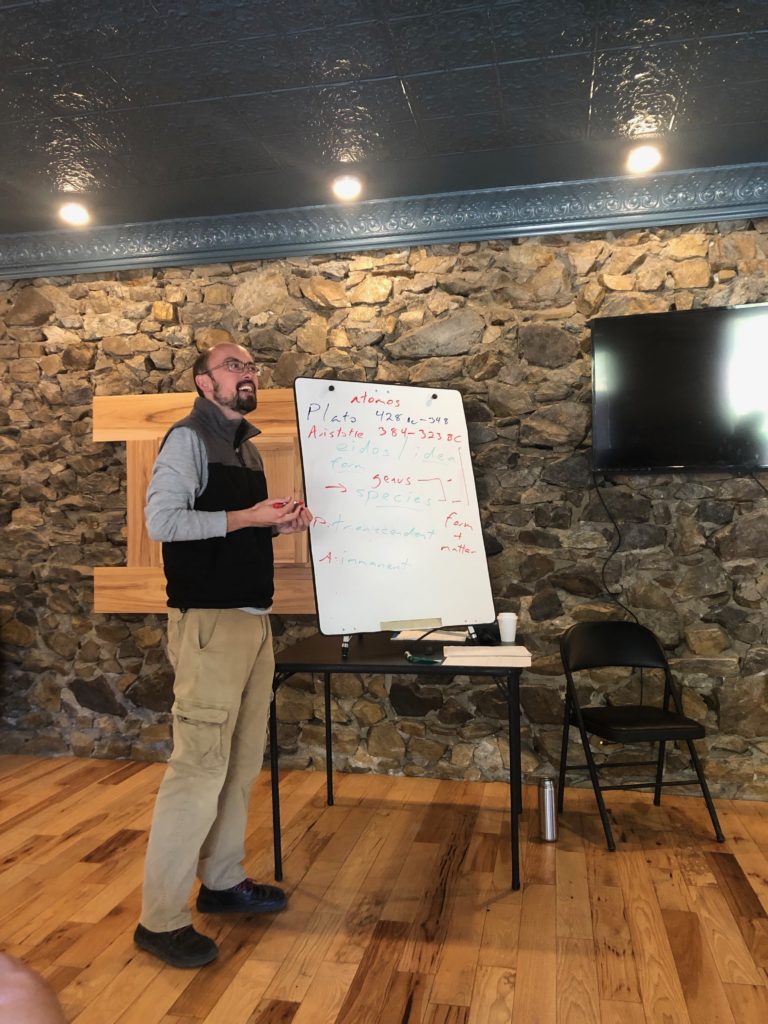
David is as a philosopher and educator whose professional work is dedicated to helping people of all ages and backgrounds access, understand, and apply the traditions of ancient philosophy to their own lives. A lover of philosophy and the great outdoors, David is currently building his own consulting practice and serves as a Philosophical Advisor and Consultant for Merlin CCC & Senior Mentor for scholars in the Merlin Fellowship Program.
David began studying ancient philosophies and classical languages in 2001, and has continued ever since. A scholar of the philosophical traditions of the ancient Mediterranean (Greece, Rome, and North Africa) and of the Indian subcontinent, reading Sanskrit, Latin, and classical Greek, he earned his Ph.D. in philosophy from Princeton University in 2014. His work has appeared in a variety of scholarly journals, including Philosophy East & West, Asian Philosophy, and the Journal of Indian Philosophy; as well as in presentations to academic audiences at Harvard, Columbia University, the University of Toronto, Yale-NUS College in Singapore, and elsewhere.
A hermit by nature and by committed choice, he balances contemplative solitude with his active work in teaching, counseling, and the healing arts. We are elated to be collaborating with David on our philosophy in the community activities, fellowships, and other Merlin projects.
Thank You’s


Thank you to Humanities Montana and P.L.A.T.O. (Philosophy Learning and Teaching Organization) for helping support our philosophy in the community programs and making events like this possible! This workshop was part of our “Thinking as a Community” project.
